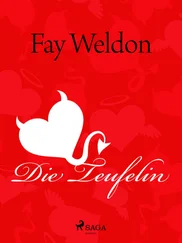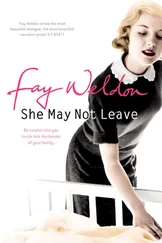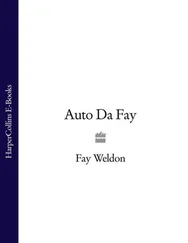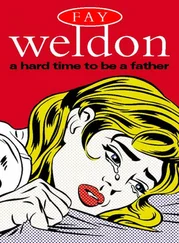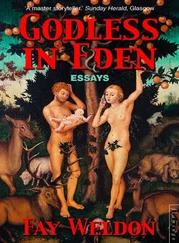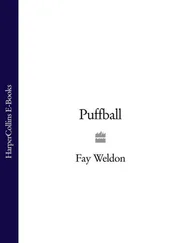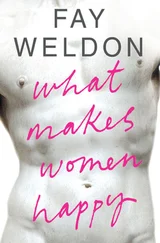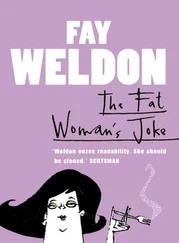Lily has soft smooth hands which move confidently amongst the material objects of this world. Lily’s nails are almond-shaped and unbroken, and the translucent pink varnish remains unchipped, as now she delicately fishes in the clear washing-up water for Jonathon’s mislaid silver christening spoon. Jonathon needs it for his egg. Lily cleans the spoon with silver polish every single day. Lily’s mother sent it from New Zealand. The spoon is becoming very thin, almost sharp. If Lily carries on like this, Jonathon will cut his little mouth on its edges.
Lily’s arms are covered not with common hair but with a soft and silky down. Lily’s legs are long and full, tapering from rounded buttocks; Lily’s toenails are always manicured; Lily’s waist is small and her breasts are high and rounded, so although Lily goes bra-less she is assumed by those who do not much like her (and there are many such) to be boldly and old-fashionedly uplifted. Lily’s face has the crude regular beauty of some painted angel, colours washed out by the passing seasons, leaving, as it were, the faint echo of better days behind. It is the look of experience.
Lily’s skin is pale; Lily’s smile is slow and sweet; Lily’s long thick hair is a careful and expensive mixture of silver, gold and grey in careful disarray. Lily is twenty-eight. She was born with the moon rising in Leo, and the sun in Aquarius. Lily moves carefully, but with a certain stiffness and lack of grace. Lily is the butcher’s daughter. In the kitchen, in the house, she lacks abandon. It may be very different in bed, of course.
Does this jowly man, this husband, this Jarvis, whose waist when he married Madeleine was thirty-eight inches, and now is thirty inches, this Jarvis with his stubby fingers and powdery nails (he draws with charcoal, she cannot stop him: art triumphs here, as art must), his reddish, loose and freckly skin, his full lax mouth, breathing indigestion; does this Jarvis, erect, rouse this pale stiff lovely Lily to passion, flush her cool skin with intemperate desires?
Ah yes, he does.
And Jonathon, fruit of their passion, twenty-six months old? Jonathon is a stocky, yellow-haired child with bright cheeks and his father’s pale full eyes. Jonathon has a stoical and uncomplaining nature, and a surprisingly friendly manner. Jonathon’s mother Lily seldom picks Jonathon up, unless obliged to in the interests of hygiene or security, or good manners. Lily is not much given to embracing, crooning, cuddling or other pointless activities. Already Jonathon is adept at climbing into his highchair by himself, scaling its frail and slippery height with ease, waiting patiently for his regulation Muesli, his bread and butter, his properly boiled egg, his sharp silver spoon and his mother’s distant smiles of approval. He will never leave her, never have enough of her.
Jonathon’s father is more demonstrative. He kisses and cuddles his son when his wife is out of the room, and when she’s there he will frequently catch Jonathon up and toss him in the air. Jonathon laughs when this happens, though more from shock than pleasure.
‘Daddy,’ he croons now, waiting for his egg, or to find himself suddenly on his head and in the air? ‘Mummy.’ He bashes his dish of Muesli with his spoon. Flakes of raw porridge oats and withered currants fly about the room.
‘Don’t,’ says Lily mildly, in her refined, careful, loving voice. Oh, I am the butcher’s daughter, but who would know it now? ‘Don’t, Jonathon.’
Jonathon doesn’t.
Jarvis, with memories of the infant Hilary, child of his first marriage, smearing the tables with sugary porridge and the walls with excreta, marvels at his second wife the more. Jarvis’s lucky ticket in the lottery of life. At the second draw, not the first.
But how early the Katkins rise, and take breakfast! It’s still only eight fifteen.
Up gets Madeleine, Jarvis’s first wife, Lily’s enemy, Hilary’s mother, not so bright and not so early.
Up gets Madeleine, putting chilly chapped feet on to brown broken lino. Up gets Madeleine, pulling on her old woollen dressing gown which smells (like the room) of damp and cigarette smoke mixed; up gets Madeleine, prompted by a sense of duty, not of inclination, to at best organise and at worse acknowledge her daughter Hilary’s departure for the local comprehensive school.
Monday morning: not a good one.
Hilary’s tights are torn; Hilary’s blouse has lost its button and Hilary’s skirt has shrunk in the wash so the waistband won’t close, and safety pins have to be found. Hilary does not care about any of these details, so Madeleine has to cling the more carefully to her own maternal concern, lest it evaporate altogether in the general depression of the morning.
Hilary is fourteen and weighs eleven stone: she has size eight feet and a thirty-eight C bust, so the missing button is important. Hilary eats Sugar Puffs as she gathers her homework together, every now and then sprinkling more spoonfuls of sugar on the already sweetened cereal. Madeleine hasn’t the energy, indeed the desire, to stop her daughter destroying her looks. Why should she? Hilary is walking witness to Madeleine’s wrongs, Madeleine’s ruin. See, says Madeleine in her heart, regarding Hilary, see what has become of me. See what Jarvis has done?
And Hilary stuffs and puffs, shovelling in fuel: for what? Resentment, boredom, anxiety, despair? Or gathering her reserves against the onslaught of the next weekend?
During the week Hilary lives with her mother. At weekends she lives with her father Jarvis and her stepmother Lily, sleeping not in the spare room (which is kept for guests) but on a camp bed in Jonathon’s room. Lily means to slim Hilary down. It is her earnest desire. On Saturdays and Sundays Lily gives Hilary a breakfast of lemon tea with artificial sweetener, two boiled eggs and one slice of starch-reduced toast spread with low-calorie margarine. But such a breakfast, followed by equally austere lunches and dinners, cannot, alas, undo the damage done by Madeleine on Monday, Tuesday, Wednesday, Thursday and Friday.
During recent months Hilary’s bosom has expanded alarmingly. Puffed wheat has become her favourite food; yes, she is altogether puffed out. Hilary stares out of pale eyes: has her mother’s sallow complexion, a puffy face, a double chin, a stodgy body, beautiful thick and golden hair tumbling on to graceless shoulders, and a sharp, sad mind.
Madeleine is forty-four, and gaunt. Madeleine is like her daughter; she eats and eats Sugar Puffs by the jumbo-size packet, and tinned milk (cheaper than fresh) by the dozen cans – but Madeleine just gets thinner and thinner. Unlike her daughter, Madeleine is vain. Her ragged jeans, her old brown matted sweater, torn beneath the arm, proclaim her with a fine exactitude to the world. This is me, Madeleine, what I am, what I have become, what I have been driven to. By Jarvis.
Wicked Jarvis. Madeleine goes to jumble sales, elbowing and stamping in order to achieve a yet more ragged pair of jeans, a yet more matted jersey by way of illustration. Madeleine will examine herself carefully in the mirror before leaving the flat: adjusting the armpit hole just nicely, so it hides the wisp of underarm hair, but not for long. Madeleine has a yellowing complexion and thick, rusty, vigorous hair, which tears teeth from combs. Madeleine’s cheeks are hollow; her huge brown eyes stare reproachfully from deep sockets. Madeleine’s voice is husky. Madeleine looks mean and hungry, which is what she feels.
Madeleine and Hilary make their home in two basement rooms in a terrace house. It is all Madeleine can afford – or rather, all that Jarvis will afford. The front room has a barred window which looks out on to a white-painted basement area. This room is the kitchen. That is, there is a sink beneath the window, with a damply rotten brown wooden draining board and an electric hotplate with two burners, which stands on top of a hospital locker. Thanks to Hilary, who has saved and scraped and stolen the loose change which lies about her father’s house in order to buy her mother this splendid present, Madeleine also has the use of a rotisserie-and-grill. This appliance has not been fixed to the wall because the plaster will clearly not stand its weight, and so it stands, perforce, on the small pre-war refrigerator, bought second-hand in the market (on Hilary’s insistence). Madeleine does not much care for cooking, which in any case is an expensive and time-wasting occupation. Why have toast when bread and butter will do? But Hilary likes a kitchen to look like a kitchen.
Читать дальше

